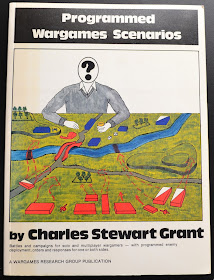I have just spent the best part of 2 days worth of painting figures updating Blitzkrieg Commander IV with both the rules and army lists errata. I nearly lost the will to live!
To cap it all the book began to disintegrate! I have seen comments elsewhere regarding pages coming loose. I feel spiral-bound rules is the way to go these days. They may not look as good on your bookshelves but they are more practical for wargaming purposes. Being able to lie flat on the table and more rugged is ideal for our requirements.
Errata is frustrating and this is where pdf rules come into their own. I do prefer though the printed variety but acknowledge the ability to download updated rules is more convenient.
BKCIV gained a good deal of praise for the extensive army lists contained within the rule book which is no small feat for WW2. Here again I do wonder if it would have been more practical to download updated lists printing off only what you require. This exercise though has fired up my interest in getting some WW2 stuff onto the tabletop.
On the subject of WW2, I recently listened to a podcast interview of Roger Moorhouse, the author of a new book "First to Fight: The Polish War 1939".
It was a fascinating interview and dispelled the myth that the Poles were reduced to cavalry charges against German armour. This was pure Goebbels propaganda designed to show the Poles as being inferior in every way which has stuck through time. Far from it. The Poles had a professional and reasonably equipped army that was far from the push-over Nazi Germany liked to portray. Had it not been for the Russians stabbing them in the back they would in all likelihood have held out for longer with ramifications for the rest of the war.
I have yet to buy this book but is very much on my purchase list for the near future. My only concern being that it may will drag me off into another WW2 project!!!
When I was a young boy in the 1960's, a close friend of the family was a Polish ex-servicemen. I only ever knew him as Uncle Woj and although not related he felt like an Uncle to me. His wartime history is mind-boggling. He was an officer in the Polish army when Germany invaded. His home and family were in the area occupied by the Russians. Having fought both the Germans and Russians he became a member of the Polish resistance before being captured by the latter and transported into a POW camp deep in the Soviet Union.
When Russia changed sides they released all the Poles from captivity but provided them with no transport or provisions. Uncle Woj walked across Russia eventually making it to the UK in an emaciated state joining the Free Polish Army. He fondly recalled how some British troops taught him to speak English - but only swear words! He walked into a pub and cheerfully practised his new-found English only to get a thumping for his troubles!
He went on to fight in Italy being with the first Polish troops to capture Monte-Cassino. He also fought in north-west Europe but my memory is sketchy as to where. Throughout his time in the Free Polish Army, he and his comrades fought for the freedom of their country only for it to be handed into the hands of another tyranny. He never harboured a grudge and I remember him as being one of the nicest mild-mannered men you would ever wish to meet. What he and his mates went through beggers belief. Real heroism rather than the over-hyped word of today. I have memories of him joining in with my early wargaming, consisting of lining up soldiers on the floor and rolling marbles at them. My only regret was that he did not live long enough for me to grow to an age where I could have fully appreciated and taken more interest in what he did.
And finally on a Polish subject, did any of you watch that dreadful BBC production "World on Fire". I saw the trailers which sparked my interest. WW2, Poland, sea battles, Sean Bean, what's not to like? The opening scene was encouraging with lines of Panzer I's and II's ready to invade. That was the high point! The BBC soaked up Goebbels propaganda and even magnified it. The American journalist reporting back that they were equipped with pedal cycles against armour and scenes of Polish troops taking their own weapons, including shotguns to war. After a couple of episodes I found myself fast-forwarding to action scenes in the vain hope there would be something worth watching.
I got to the Battle of the River Plate. They clearly have learnt nothing from HBO and others on how to create credible and exciting battle scenes. Firstly, HMS Exeter! You really would have thought that it could not have been that difficult to compile a CGI recreation of the actual ship. But no, this is the BBC. The ship they depicted was decidedly weird not helped by poor CGI. I have no idea what it was supposed to be. And then there was the action - confined almost entirely to one of Exeter's turret barbettes.
I really cannot tell you anything of the story after this as I had given up. It ended in France in 1940 indicating the story will continue in Series 2! I think I will give that a miss. This is a crying shame as I have always thought that the wars we research as part of our hobby are festooned with fantastic stories, larger than life characters and human nature at its absolute best and worst. Indeed, an epic could be made depicting the life of my Uncle Woj!






